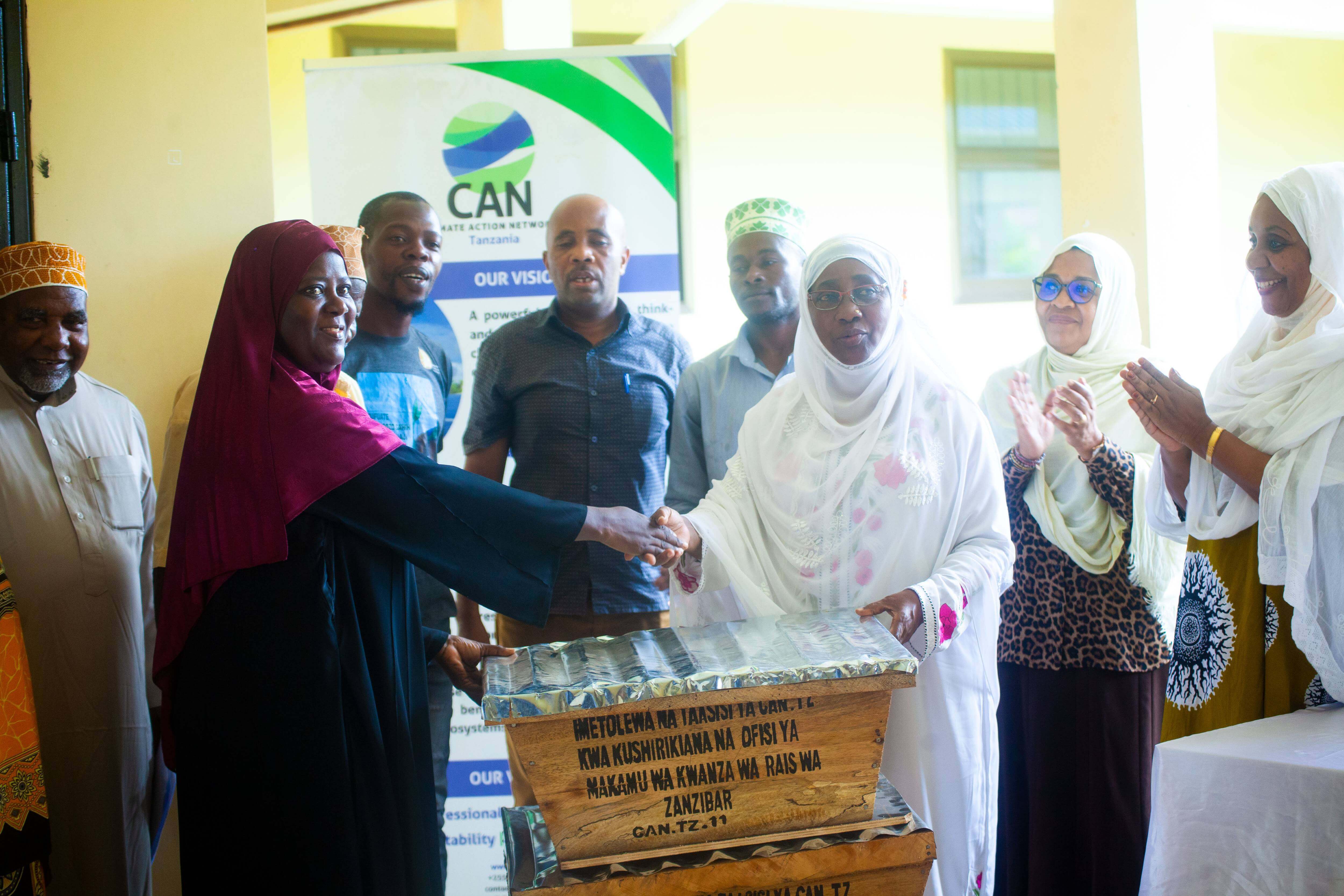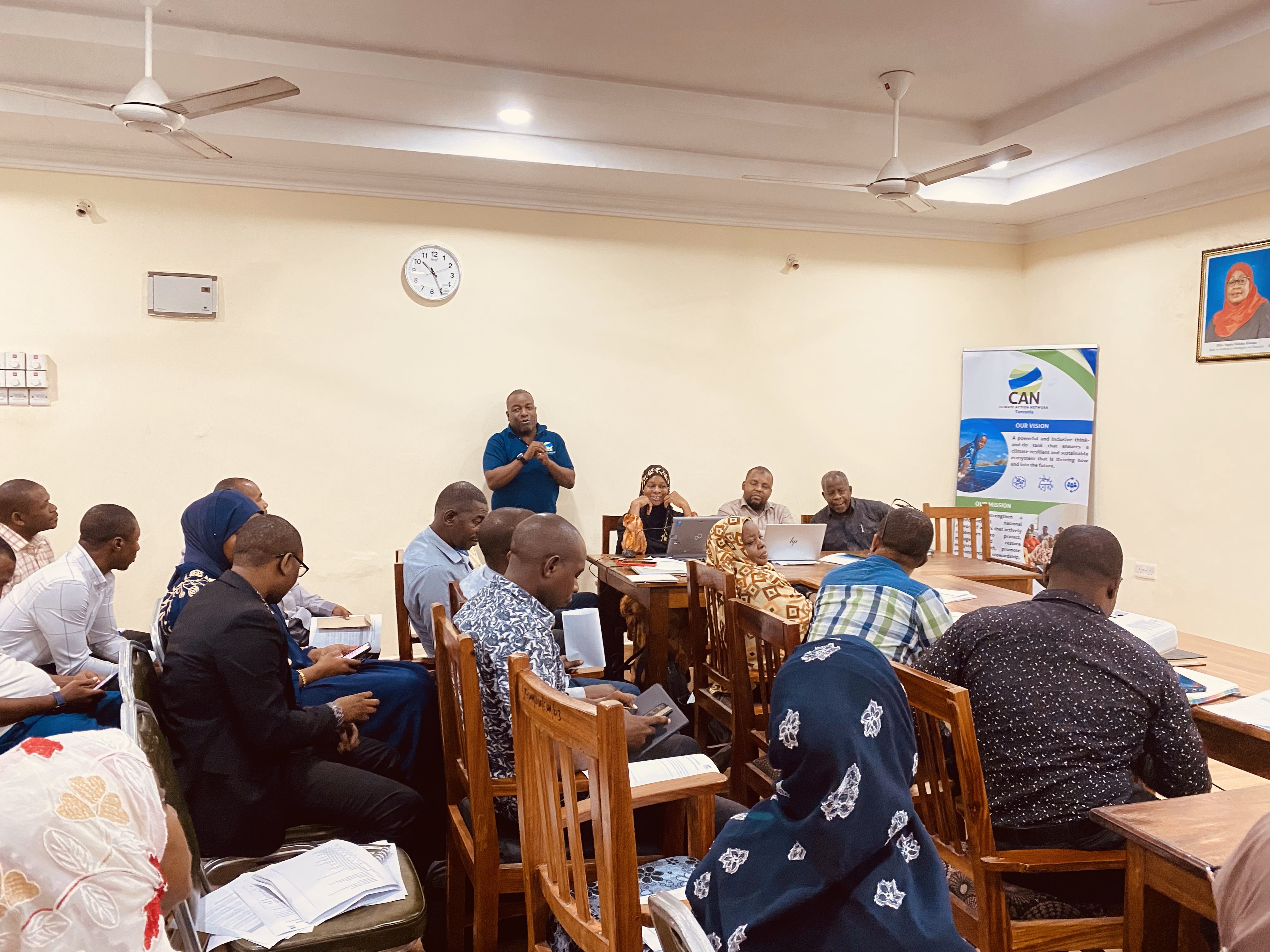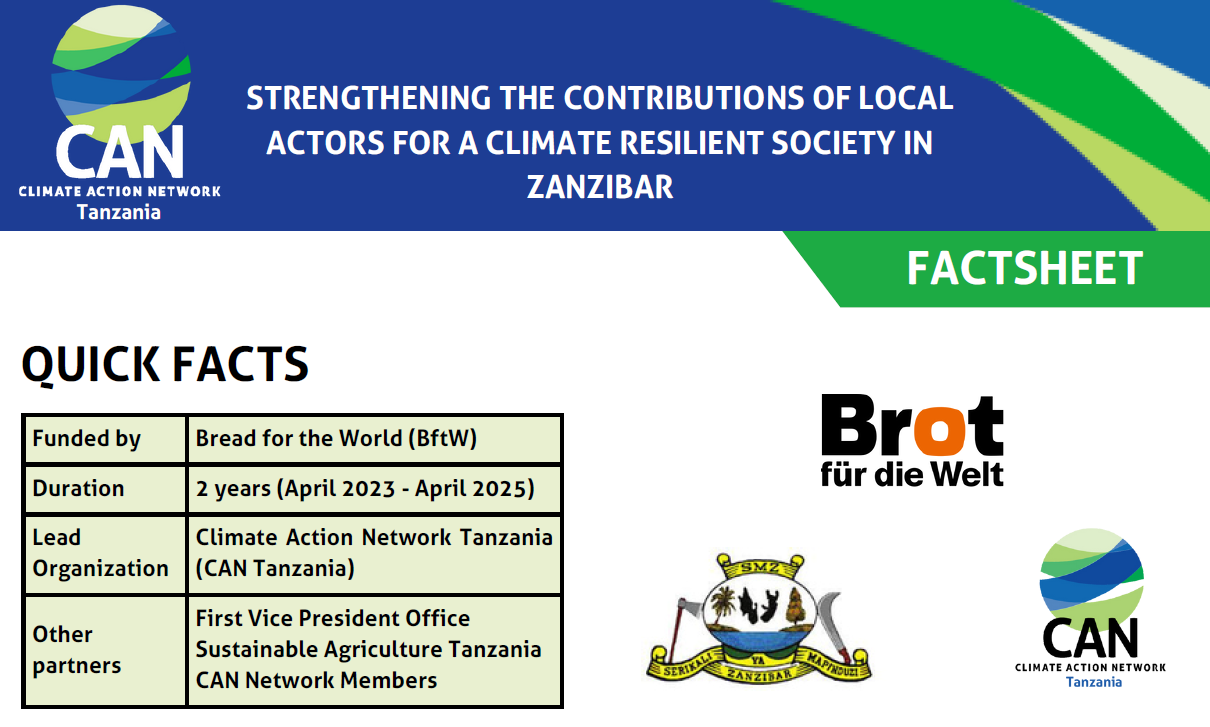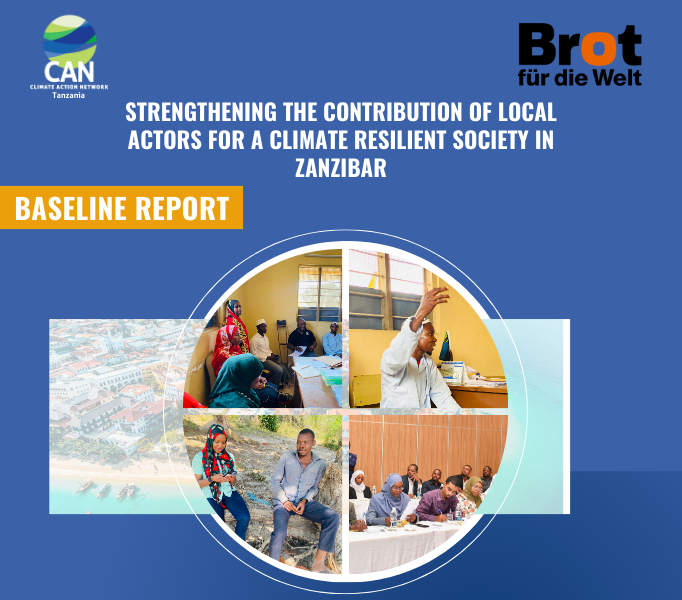Strengthening the Contribution of Local Actors for a Climate Resilient Society in Zanzibar
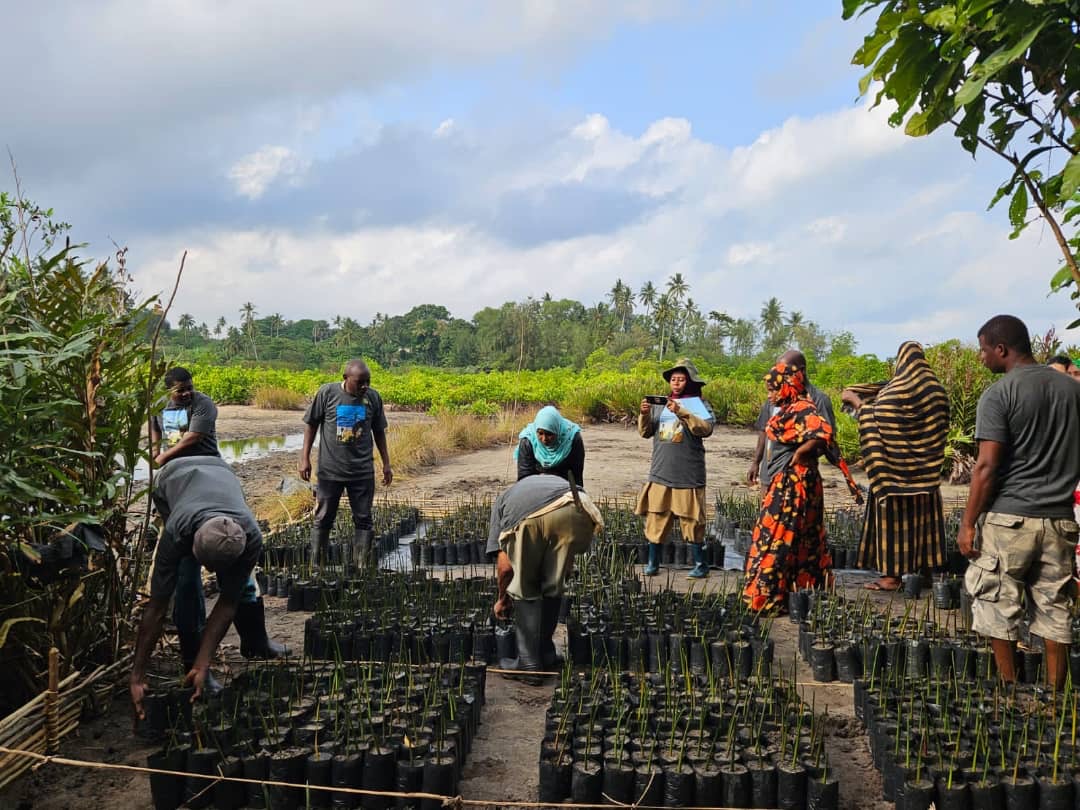
Tanzanian coastal areas and Zanzibar islands have complex and dynamic systems in terms of both human activity and biophysical conditions. They carry a substantial proportion of the national population and support several community livelihood options.
Unfortunately, in Zanzibar, the economy, and the livelihood sectors of 87% of the population are climate sensitive with high levels of vulnerability (especially agriculture, freshwater, settlement, fisheries, and tourism) and face environmental degradation. Other linked challenges include droughts, storms, temperature rise, strong wind speed, saltwater intrusion, coastal erosion and displacement, impaired drinking water and soil fertility, and floods.
These climate change and variability challenges are resulting in significant economic costs, loss of life, poverty, and other human capital which compromise food and water security for most local communities.
Therefore, the project
contributes to developing climate resilience in local communities in Zanzibar.
Objectives
The project aims to improve climate change adaptation
practices in Zanzibar by 2025 and support the reviewing of Zanzibar political frameworks (Zanzibar Climate Change Strategy and/or Zanzibar Environment Policy strategies) in a participative manner and are coherent with the NDC.
Project Impact
CAN on the field
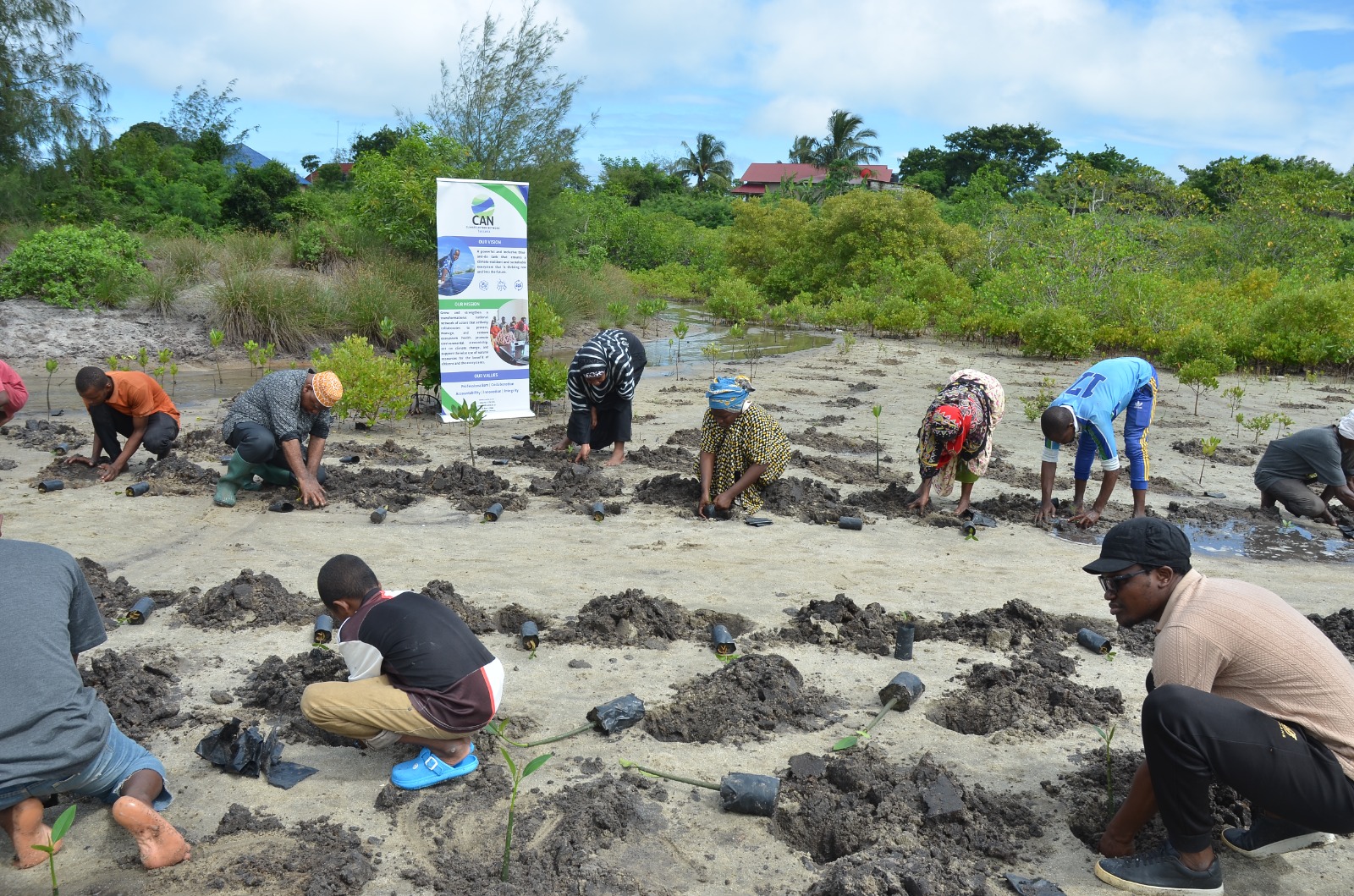
CAN Tanzania and community members participating in planting the mangroves grown from the previously established tree nursery
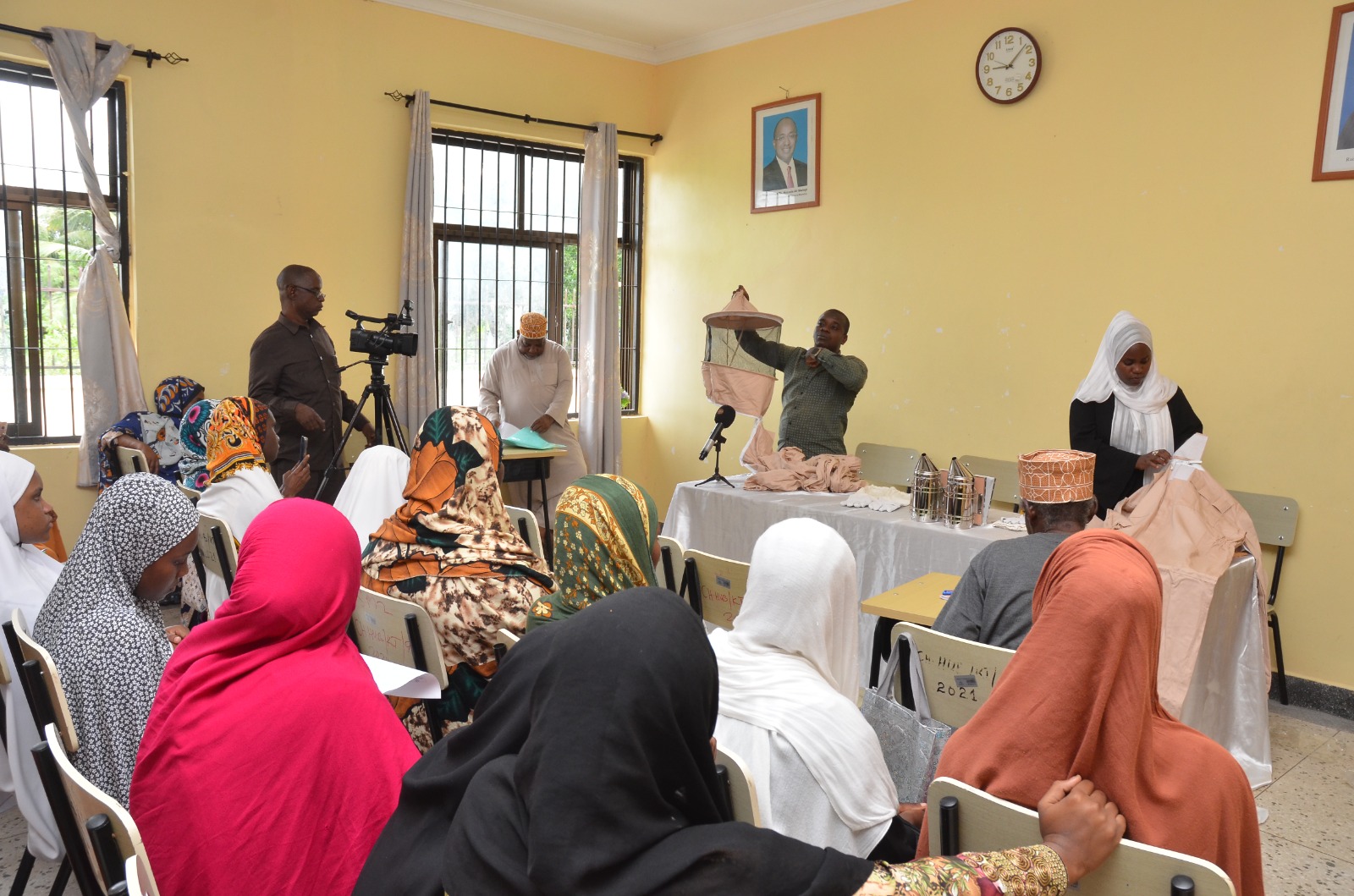
Beekeeping training and the handing over of Personal Protective Equipment (PPE) to the Chuini community members
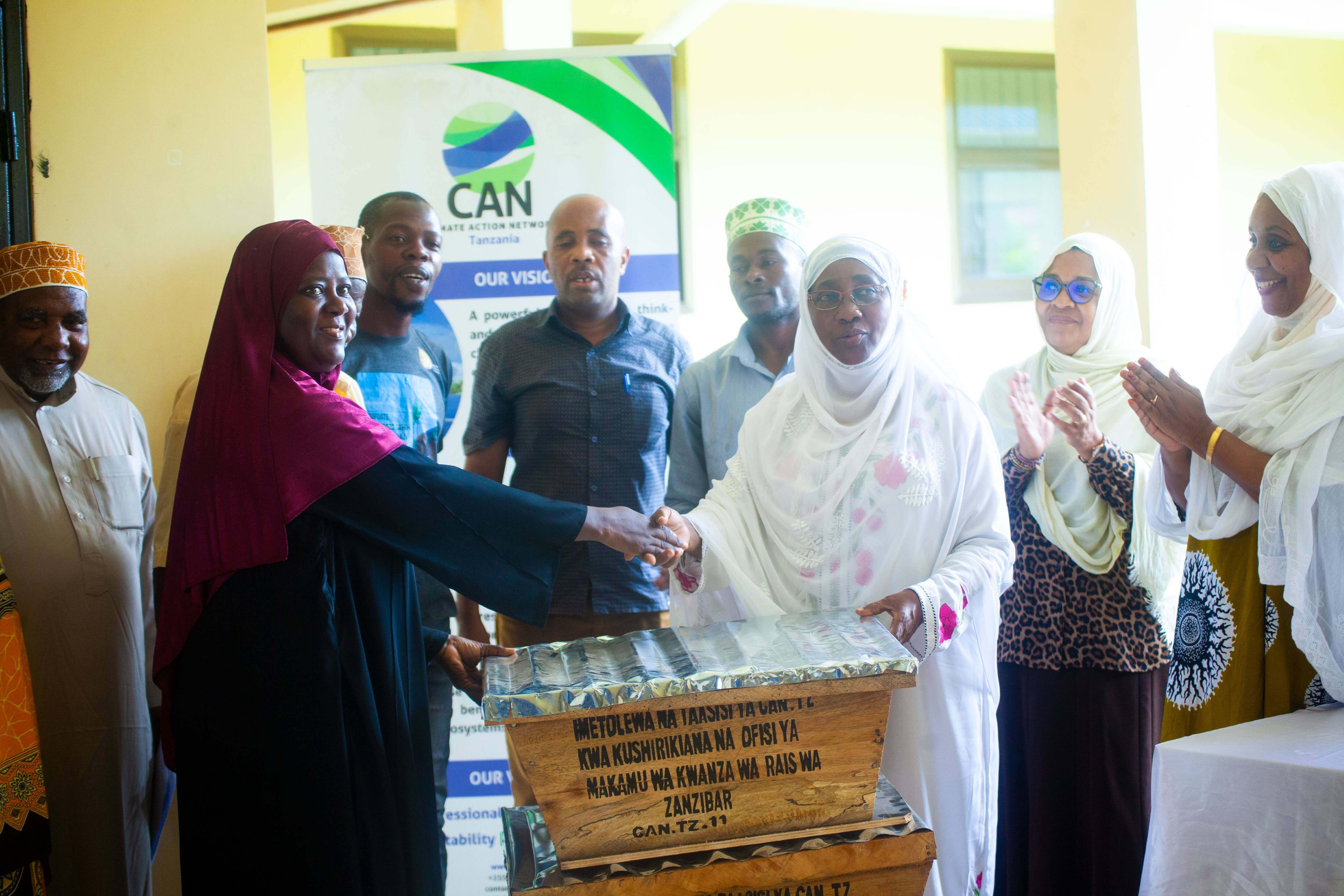
Hon. Harusi Saidi Suleiman, Minister of State, Office of the First Vice President of Zanzibar, handling beehives to a Chuini community member as part of livelihood diversification initiatives facilitated by CAN Tanzania in Chuini.jpg

Chuini local community working at the established mangrove nursery
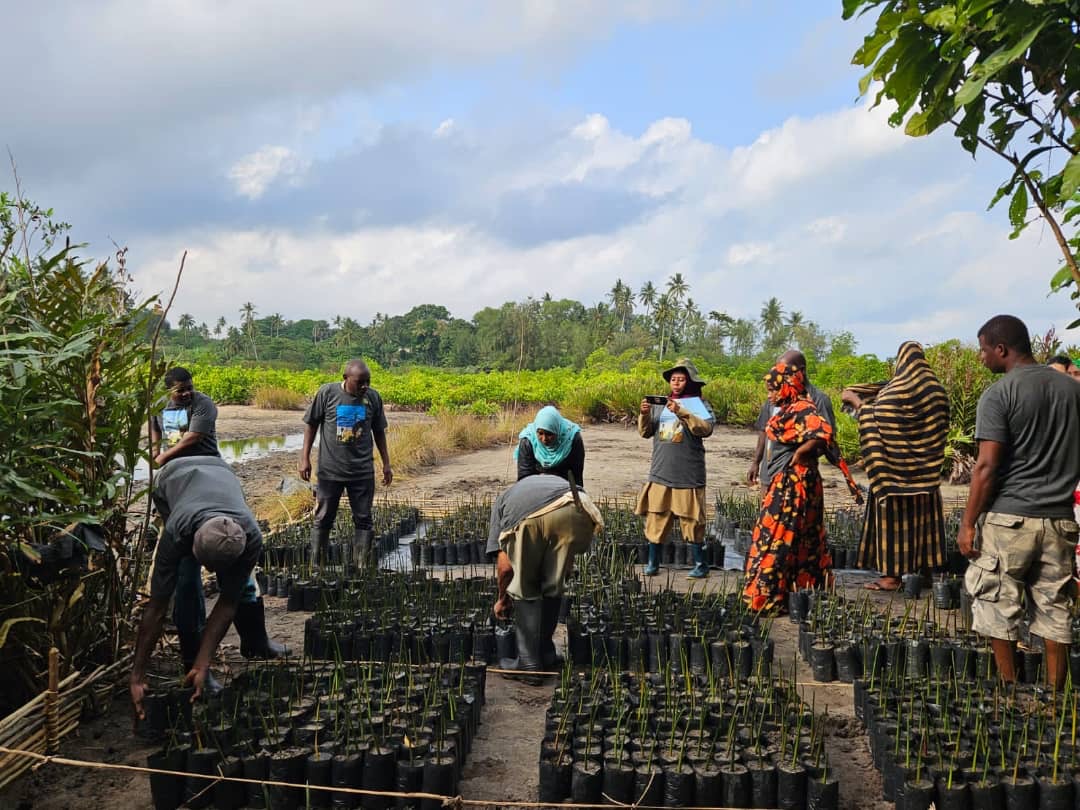
Activities at the established mangrove nursery at Chuini
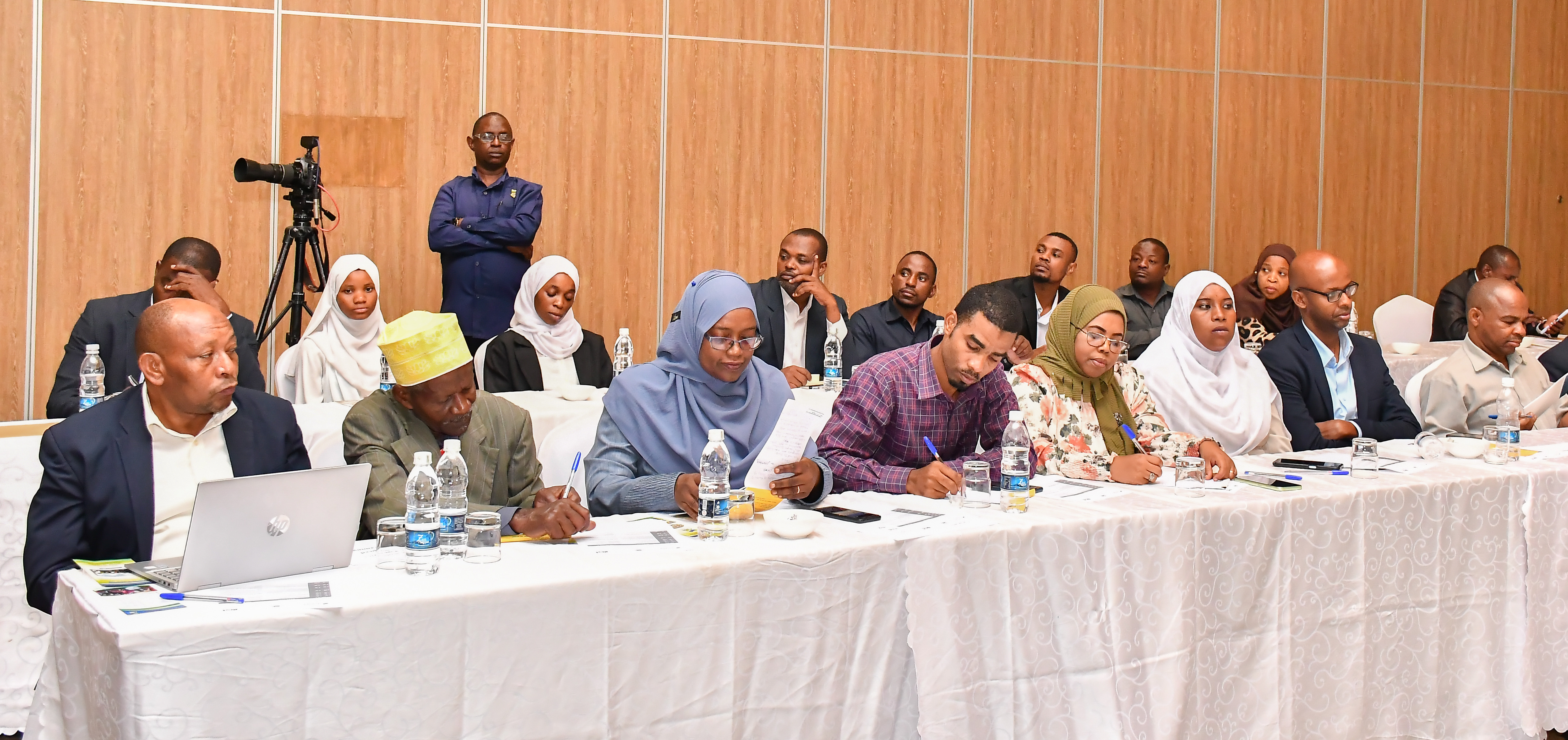
Stakeholders consultation session to review Zanzibar Environmental Policy (2013).jpg
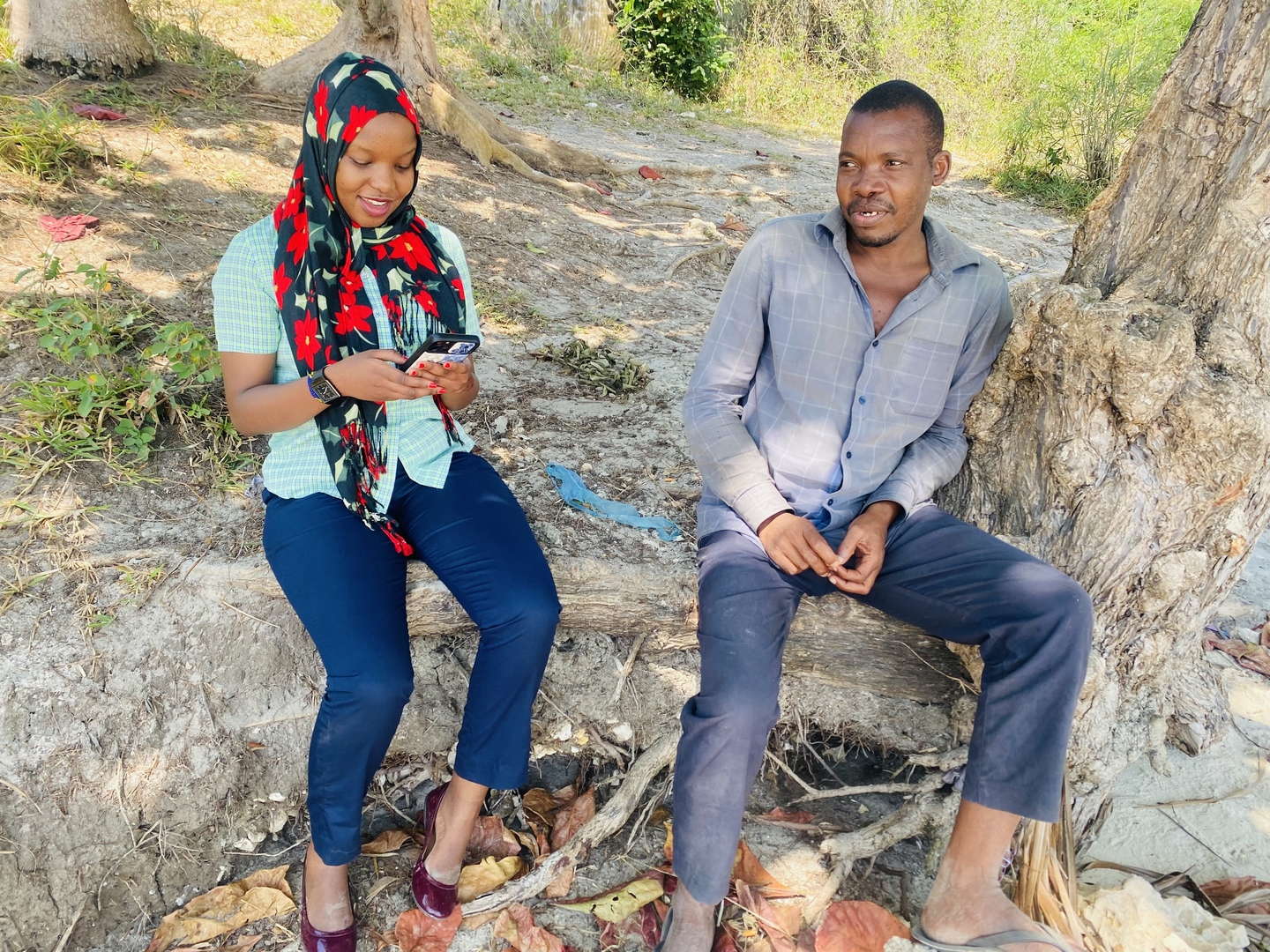
Data collection during Zanzibar baseline study in Chuini Shehia.jpg

